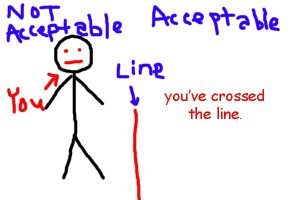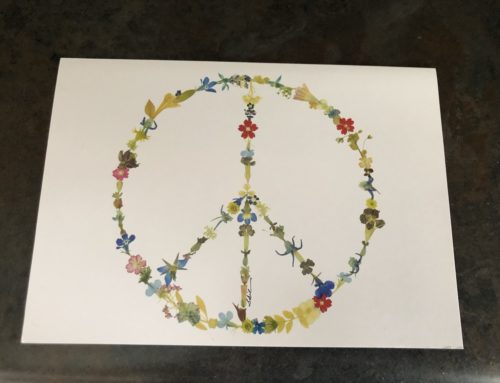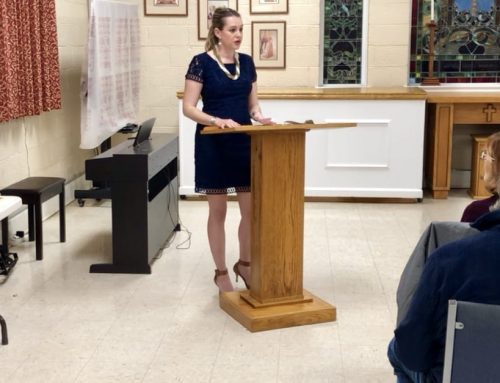The Wave of a Woman’s Place Standing Up & Leaning In: My Personal Story
Feminism in the Workplace
As my career has progressed, first from the very predominately female world of education, into the role of a paralegal and account management during grad school, and then landing permanently on the communications and marketing planet, I’ve observed different dynamics of cultural diversity and where women were within the workplace. When I was in grad school, studying cultural rhetorics in professional settings and tech comm, I took it a step further and did an exploration of feminism.
Since that study, it’s safe to say that the “f word” is blowing up.
It’s both a dirty word, empowering term, and a badge of honor. I’ve felt my ownership of that term hit me in all forms.
Some people seem to think that the feminist movement may have begun and ended, but really it’s come in four waves. Feminism now means many things and I regularly see headlines about women in the workplace, how much they should “lean in” and whether that is to be like Marissa Mayer’s model or more like Sheryl Sandberg’s adjusted advising, the balance of women leadership. Arianna Huffington’s and Sheryl Sandberg’s books have very much inspired and encouraged my tendency of fearlessness to ask questions, take a seat at the table, and put myself out there.
However, that doesn’t mean I haven’t faced challenges, sometimes even more, for the audacity to live this way and try to be bold, but feminine. Mostly I’m rather outgoing, but sometimes I can be shy too, believe it or not.
Facing Unwanted Contact
In 2014, I had my first contract job, through a staffing agency, following completion of my graduate degree. They seemed genuinely interested in this opportunity that would be a good step in my career. So, I took it. My supervisor at the temp agency was the VP and he checked in with me almost constantly. It was weird, but I figured that was just the norm with contract jobs and placements through an agency. Later on, once I’d left that company, I was still invited to their annual Christmas party. I decided to go. It was nice to get to know other people who were working for and had worked for that agency. I also ran into a colleague and enjoyed seeing some other leaders at the company. Being that it was a holiday party, I decided to wear my red heels and a black and green dress. I made my way around trying to make conversation.
Eventually, the VP, who had directly supervised me during my time in that contract, came over to greet me. I noticed him pause. He looked me up and down and I felt like I was being undressed by his eyes, as he uttered, “Oh, Lindsay, I love your dress.” Now, I don’t care whether you’re a man or woman who has a thing for fashion, there’s a way to compliment someone’s outfit and then there’s an inappropriate way to do it. The tone of his voice was icy and it made my skin crawl.
Within seconds, I felt his arm around me and it was right below my arm, just close enough to my chest to make me uncomfortable and it slid down my body, to rest on my backside. I was standing at an angle so that the gentlemen I was speaking to didn’t see. Anyone else who did never said a thing. I froze in a state of shock. He stood there chatting everyone and within a minute, it was over. Still. It was a minute too long. I was shaking, but wanted to say goodbye, so I lingered at the party. I should have run out. I should slapped him. I should have yelled. I should have done lots of things. But what would have been the right way to react? I didn’t know. Wouldn’t it all cause a scene and make me look like the idiot, rather than him? So, I froze, pretended nothing had happened, and later left at the same time with another colleague who I look to as a big brother or father figure. On the sidewalk outside, I told him what had happened. As the father of a teenage girl, he was distraught for me. I went home and felt disgusted.

You’ve Crossed the Line
Within days, I consulted with a police officer and a professional mentor. They advised I try saying something in an email and confirmed what I thought. This was sexual assault. I hesitated and my friend, the police officer, reminded me, “Lindsay, you’re not some piece of meat.” He was right and I was angry. I confronted this executive in an email. He apologized, but was wise to not say what he was apologizing for. Considering my position, I’m still early in my career, especially early when it comes to marketing with my 3–6 years, in comparison to the 7 years previously spent in education and law, so would I jeopardize my future if I said something? He knows far more people than me. He could ruin me. I chose to stay silent. And didn’t speak of it again for 8 months.
Breaking the Silence
Every time his name or the temp agency’s name came up, I cringed. I saw him at an annual banquet a few months later and turned away when he said hello to me. I found a seat that would allow me to not see him throughout the evening. I got rid of the black and green dress. Some people might think this is extreme and say, “You weren’t raped. You were just groped.” I get it and they’re right. Still. I didn’t like it or want it. What creeped me out even further was that his wife was standing nearby when it had happened. I couldn’t process that. What kind of person would do that? How would she feel if she knew what had happened?
Nearly a year and a half later, I started to talk about it. If someone asked my opinion of certain recruiters and temp agencies to work with, I would suggest that company was not one to be connected to because something inappropriate had happened to me, but not go further into details. Someone brought up the company’s name as a resource I should use when looking for work again. I nodded and acknowledged the suggestion. When it came up again in the same conversation, I mentioned that something inappropriate had happened that would prevent me from ever working with them again. I said I couldn’t talk about it nor would I approach another executive there. The person said that the President, of the agency, should know that someone who represents his company had done something like this. I agreed, but still didn’t want to deal with it. A few months later, I read An Open Letter to Managers of Women, first on Medium and then LinkedIn.
And I knew I needed to talk about it.

National Women’s Equality Day
Unbeknownst to me, I chose to speak to the President of the company on #WomensEqualityDay, August 26. Apparently, he knew. He knew what had happened, but no one had approached me. Why? We should be talking to women — about them and with them. We shouldn’t reward drama or conceal it either. Women should be afforded the same opportunities and held to the same standard as men in the workplace. I saw the #WomensEqualityDay dialogue on Twitter and knew this is big. It’s bigger than me. I asked how he would feel if his daughters had experienced what I had or, better yet, how would this executive who had done this feel if someone had violated his daughter this way? That hit a nerve. They had a longtime relationship. Known each other over 20 years. I challenged the description of this “honorable executive.”
You lose your honor when you do something so wrong like that.
I want to speak out because more people should. More women should. More executives need to be aware of their position. You could make a great difference in someone’s life — for better or for worse. Since this happened, I’ve pursued more opportunities to volunteer and speak out about people less fortunate than me. While I hesitate to be near this Vice President of that temp agency or anyone who works there, I now engage with Congressmen, the great lawmakers in this country, and I challenge them via my advocacy work with RESULTS Raleigh. I challenge them to make a difference too. Let’s lend a hand up to those less fortunate and empower them to grow.
Lean In & Stand Up
There is a problem with people not communicating when these things happen. There is a problem with people not taking responsibility for their actions. There is a problem with how this impacts people long-term personally and professionally. I’m Southern. It’s only natural for me to want to hug when I greet people and say goodbye. I hesitate a little more now. And I hope the men at that company do too. The President did follow up with me after our meeting and indicated they spoke openly with the rest of their team, including the women, about what had happened. I couldn’t call him back or respond to the apologetic text messages, and I have little interest in a face to face with the Vice President who made me feel so small and uncomfortable with his one action and his position of power. Later on the President sent me an email wishing me peace and happiness. Seemed a little snarky to me as if I had decided to create this situation of my own accord. Another observation I shared with the president? The executives at the company are men.
The women run the show, but they work for the men. When will these patterns change?
When I worked at Lenovo last year, I remember being a part of the Internal Communications and Global Communications Team, which had a meeting with the VP Global HR and Chief Diversity Officer, Yolanda Conyers. She’s a driven, friendly, engaging executive who also happens to be a woman of color. She greeted the room with a smile and encouraged everyone to “take a seat at the table.” I already had, but all the people in the seats along the walls were women. My first few minutes in the room with this woman and I was already in awe. No matter your allegiances, and I do not think Hillary Clinton is a saint, it’s pretty huge for me to see a woman accept the nomination for the highest position of power in this country.
I hope I continue to see waves of feminism, women leaning in, and women leading more. Arianna Huffington, Sheryl Sandberg, Emma Watson, Malala Yousafzai, and Yolanda Conyers are just a handful of women I admire for their women’s empowerment. I also hope to see more empowerment of both men and women on equal playing fields. It’s time. It’s time for more conversations, less judgment, and more recognition of the people — men and women — as partners.
Lindsay K. Saunders is a freelance writer, content specialist, and content strategist. She hopes this post leads to more dialogue about women in communications and tech, empowerment, and equality. Interested in joining her with our advocacy work to fight poverty? Take a look at RESULTS Raleigh and follow her on Twitter.




Leave A Comment
You must be logged in to post a comment.